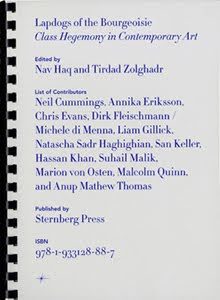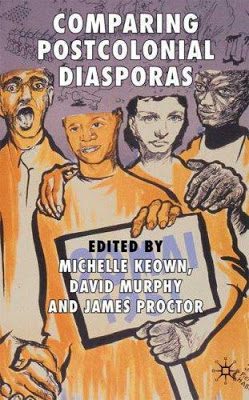Hall Library reading group discussion post. Thursday 14th April

Malik, Suhail. ‘We gonna pop a cap(ital) in your (cl)ass: Karl Marx’s Capital volume III’ in Nav Haq and Tirdad Zolghadr (eds.) Lapdogs of the bourgeoisie: class hegemony in contemporary art. Sternberg Press, 2007. pp.53-68
Thanks to everyone that attended this month’s reading group discussion. For those unable to attend the audio recording of the discussion is now available to download via the library website here. You can also listen to all previous audio recordings and download a copy of our reading list from the website.
If you are interested in attending future reading group discussions then please contact library@iniva.org
We welcome all attendees to the discussions, and the Stuart Hall Library reading group is open to everyone, whether you are in formal education, academia, artistic practice or have a general interest.
Please note that as of next month we will be changing the time of our reading group meeting. The sessions will now run from 6:30pm-8pm starting Thursday 12th May.
Key questions and points for discussion:
- Is there a class struggle between artists, owners, and institutions? Malik argues that ‘[…]the politics of class struggle in art will be to…recover the primacy of the artist as producer[…]’
- p.59 According to Malik, ‘the real action is now happening between dealers and gallerists- and the producers of the commodities who are becoming less and less important agents.’ Do you think this is true?
- p.66 ‘You can see why conceptual art is a great benefit because you just get rid of the commodity thing and start circulating freely.’ Does conceptual art disrupt the idea of art as commodity? What is the ‘use-value’ of art?
- Malik claims that the ‘inflation of the art market will change the arts.’ Do you think this statement is true?
- p.68 Malik concludes ‘ I just don’t see the bourgeois or for that matter the proletariat as the relevant figure for understanding capital today.’ Do you agree, as the audience member asks, that the relation between one class oppressing another no longer exists?
Next Meeting

Comparing postcolonial diasporas. Palgrave Macmillan, 2009. pp.56-80
A copy of the text is available in the Stuart Hall Library. If you are having any problems obtaining a copy of the book then please contact us and we will make this available to you.
Email the library for further information or to book your place: library@iniva.org